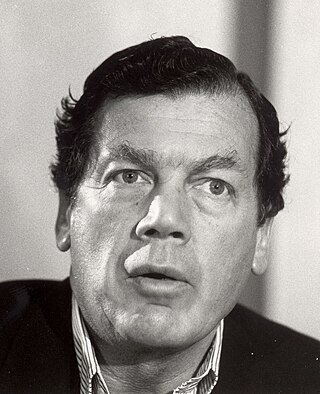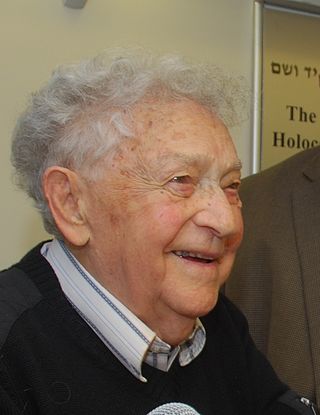
Aleksandr Isayevich Solzhenitsyn was a Russian author and Soviet dissident who helped to raise global awareness of political repression in the Soviet Union, especially the Gulag prison system. He was awarded the 1970 Nobel Prize in Literature "for the ethical force with which he has pursued the indispensable traditions of Russian literature". His non-fiction work The Gulag Archipelago "amounted to a head-on challenge to the Soviet state" and sold tens of millions of copies.

Lev Davidovich Bronstein, better known as Leon Trotsky, was a Russian revolutionary, politician, and political theorist. He was a central figure in the 1905 Revolution, October Revolution, Russian Civil War, and establishment of the Soviet Union. Trotsky and Vladimir Lenin were widely considered the two most prominent Soviet figures, and Trotsky was "de facto" second-in-command during the early years of the Russian Soviet Republic. Ideologically a Marxist and Leninist, his thought and writings inspired a school of Marxism known as Trotskyism.

The Gulag Archipelago: An Experiment in Literary Investigation is a three-volume non-fiction series written between 1958 and 1968 by Russian writer Aleksandr Solzhenitsyn, a Soviet dissident. It was first published in 1973 by the Parisian publisher YMCA-Press, and it was translated into English and French the following year. It explores a vision of life in what is often known as the Gulag, the Soviet labour camp system. Solzhenitsyn constructed his highly detailed narrative from various sources including reports, interviews, statements, diaries, legal documents, and his own experience as a Gulag prisoner.

The Great Purge, or the Great Terror, also known as the Year of '37 and the Yezhovshchina, was a political purge in the Soviet Union that took place from 1936 to 1938. It sought to consolidate Joseph Stalin's power over the Communist Party of the Soviet Union and aimed at removing the remaining influence of Leon Trotsky within the Soviet Union. The term great purge was popularized by the historian Robert Conquest in his 1968 book The Great Terror, whose title was an allusion to the French Revolution's Reign of Terror.

Mass surveillance is the intricate surveillance of an entire or a substantial fraction of a population in order to monitor that group of citizens. The surveillance is often carried out by local and federal governments or governmental organizations, but it may also be carried out by corporations. Depending on each nation's laws and judicial systems, the legality of and the permission required to engage in mass surveillance varies. It is the single most indicative distinguishing trait of totalitarian regimes. It is often distinguished from targeted surveillance.

Edgar Miles Bronfman was a Canadian-American businessman. He worked for his family's distilled beverage firm, Seagram, eventually becoming president, treasurer and CEO. As president of the World Jewish Congress, Bronfman is especially remembered for initiating diplomacy with the Soviet Union, which resulted in legitimizing the Hebrew language in the USSR, and contributed to Soviet Jews being legally able to practice their religion, as well as immigrate to Israel.

Isidor Feinstein Stone was an American investigative journalist, writer, and author.

Malcolm Timothy Gladwell is a Canadian journalist, author, and public speaker. He has been a staff writer for The New Yorker since 1996. He has published eight books. He is also the host of the podcast Revisionist History and co-founder of the podcast company Pushkin Industries.
The Ministry of State Security, abbreviated as MGB, was a ministry of the Soviet Union from 1946 to 1953 which functioned as the country's secret police. The ministry inherited the intelligence and state security responsibilities of the People's Commissariat for Internal Affairs (NKVD) and People's Commissariat for State Security (NKGB). The MGB was led by Viktor Abakumov from 1946 to 1951, then by Semyon Ignatiev until Stalin's death in 1953, upon which it was merged into an enlarged Ministry of Internal Affairs (MVD).

Yitzhak Arad was an Israeli historian, author, IDF brigadier general and Soviet partisan. He also served as Yad Vashem's director from 1972 to 1993, and specialised in the history of the Holocaust.
A stay-behind operation is one where a country places secret operatives or organizations in its own territory, for use in case of a later enemy occupation. The stay-behind operatives would then form the basis of a resistance movement, and act as spies from behind enemy lines. Small-scale operations may cover discrete areas, but larger stay-behind operations envisage reacting to the conquest of whole countries.

The Ministry of Public Security, was the secret police, intelligence and counter-espionage agency operating in the Polish People's Republic. From 1945 to 1954 it was known as the Security Office, and from 1956 to 1990 as the Security Service.

Timothy David Snyder is an American historian specializing in the history of Central and Eastern Europe, the Soviet Union, and the Holocaust. He is the Richard C. Levin Professor of History at Yale University and a permanent fellow at the Institute for Human Sciences in Vienna.
Isaac Don Levine was a 20th-century Russian-born American journalist and anticommunist writer, who is known as a specialist on the Soviet Union.
George Trofimoff was a United States military intelligence officer of Russian descent. He was convicted in a U.S. federal court of having spied for the Soviet Union during the 1970s and 1980s. He was sentenced to life imprisonment on September 27, 2001. George Trofimoff is the most senior officer in U.S. military history to have been charged with or convicted of espionage.

Stephen South Wolff is one of the many fathers of the Internet. He is mainly credited with turning the Internet from a government project into something that proved to have scholarly and commercial interest for the rest of the world. Dr. Wolff realized before most the potential in the Internet and began selling the idea that the Internet could have a profound effect on both the commercial and academic world.

Nineteen Eighty-Four is a dystopian novel and cautionary tale by English writer Eric Arthur Blair, who wrote under the pen name George Orwell. It was published on 8 June 1949 by Secker & Warburg as Orwell's ninth and final book completed in his lifetime. Thematically, it centres on the consequences of totalitarianism, mass surveillance, and repressive regimentation of people and behaviours within society. Orwell, a staunch believer in democratic socialism and member of the anti-Stalinist Left, modelled the Britain under authoritarian socialism in the novel on the Soviet Union in the era of Stalinism and on the very similar practices of both censorship and propaganda in Nazi Germany. More broadly, the novel examines the role of truth and facts within societies and the ways in which they can be manipulated.

The People's Commissariat for Internal Affairs, abbreviated as NKVD, was the interior ministry and secret police of the Soviet Union from 1934 to 1946. The agency was formed to succeed the Joint State Political Directorate (OGPU) secret police organization, and thus had a monopoly on intelligence and state security functions. The NKVD is known for carrying out political repression and the Great Purge under Joseph Stalin, as well as counterintelligence and other operations on the Eastern Front of World War II. The head of the NKVD was Genrikh Yagoda from 1934 to 1936, Nikolai Yezhov from 1936 to 1938, Lavrentiy Beria from 1938 to 1946, and Sergei Kruglov in 1946.
Geoffrey P. Megargee was an American historian and author who specialized in World War II military history and the history of the Holocaust. He served as the project director and editor-in-chief for the Encyclopedia of Camps and Ghettos, 1933–1945 produced by the United States Holocaust Memorial Museum. Megargee's work on the German High Command won the 2001 Distinguished Book Award from the Society for Military History.

Sylva Zalmanson is a Soviet-born Jewish Prisoner of Zion, human rights activist, artist and engineer who settled in Israel in 1974.
Sylva Zalmanson was most memorable with the stringing and hunting effect, not heard since the publication of Anne Frank's diary of a young girl














